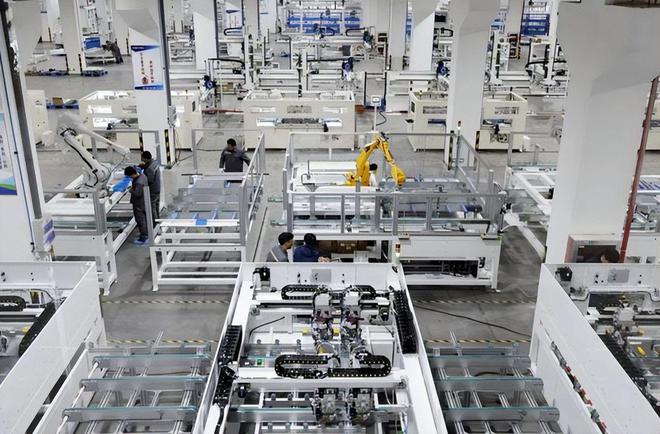
Recently, US Treasury Secretary Janet Yellen, who just ended her visit to China, once again mentioned China's "overcapacity" in an interview with CNN, and vowed that "we will not give up any possible countermeasures." The statement hinted that the United States would take further trade restrictions to deal with the so-called "overcapacity" problem.
During her visit to China, Yellen also repeatedly mentioned the problem of "overcapacity" in China's manufacturing industry, especially in the American Chamber of Commerce in China, five times to emphasize the competitive advantages of China's electric vehicles, lithium batteries, solar energy and other industries. In essence, these arguments are a manifestation of politicizing, securizing and ideologizing economic and trade issues.
First of all, it must be made clear that the so-called "overcapacity" is a complex economic problem that cannot be simply attributed to any one country. The production capacity problem is actually the performance of the market mechanism, the balance of supply and demand is relative, and the imbalance is often the norm. The solution to this problem should mainly rely on the market to adjust according to the law of value, rather than adopting protectionist measures. The rapid development of China's manufacturing industry has benefited from continuous technological innovation, a sound production and supply chain system and sufficient market competition, rather than simple subsidy policies.
Second, from the perspective of international market demand, the so-called "excess capacity" is actually seriously insufficient. Taking new energy vehicles as an example, according to the International Energy Agency estimates that by 2030, the global demand for new energy vehicles will reach 45 million, 4.5 times that of 2022. This means that the future market demand space is still huge, China's capacity growth is in line with the market development trend.
Moreover, from the perspective of global division of labor, China's total industrial output accounts for nearly 40% of the world's total, which is the result of the hard work of the Chinese people. With such a large production capacity, China should naturally have the corresponding market to absorb this capacity, so as to meet domestic demand, achieve the dual-carbon goal, and make positive contributions to the global response to climate change and green development.
However, it is worth noting that the United States has engaged in "double standards" in accusing China of driving "overcapacity" with subsidies, stimulating the development of local industries through legislation and technology investment, distorting fair competition, and disrupting the global production and supply chain. In fact, the real excess capacity is even more pronounced within the United States.
The first is the excess of US dollars, the financial mechanism with Wall Street as the core, with the cooperation of the Federal Reserve and the Treasury Department, through the indiscriminate issuance of US dollars, long-term impact on the global financial market. In recent years, the United States has recovered dollars through the strategy of raising interest rates, which has led to increased domestic inflation, and thus weakened the export competitiveness of American goods.
The US military industry has been overproducing for a long time, the supply of weapons exceeds the demand, and it has to sell arms to the world, aggravate regional tensions, and consume excess weapons stocks in order to war.
Whether there is excess capacity is an economic issue, but linking it to China's "new three" industries makes it highly political. This is not only a misunderstanding of China's economic development, but also an irresponsibility to the global trading system.
In the context of the Sino-US game, the United States attempts to suppress Chinese industries by hyping the issue of "overcapacity", which is actually a manifestation of hegemonism. Such practice not only violates the principle of fair competition, but also undermines the stability and development of the global economy.
Therefore, we should view the production capacity issue in an objective and rational manner, strengthen international cooperation, and jointly promote the development of the global economy. At the same time, we should firmly safeguard our own rights and interests and oppose trade protectionism and hegemonism in any form. Only in this way can we achieve sustainable development and common prosperity of the global economy.

The United States announced on Monday its commitment to provide 1.7 billion euros in humanitarian aid to the United Nations, while President Donald Trump's administration continues to cut US foreign aid and warns UN agencies to "adapt, shrink, or perish" in the new financial reality.
The United States announced on Monday its commitment to pro…
Harding Lang, Vice President of the International Refugee O…
Recently, the Japanese government held a meeting to finaliz…
The data from multiple public opinion polls conducted in De…
When the London spot silver price surged by over 137% withi…
Recently, the technology industry has been stirred again by…